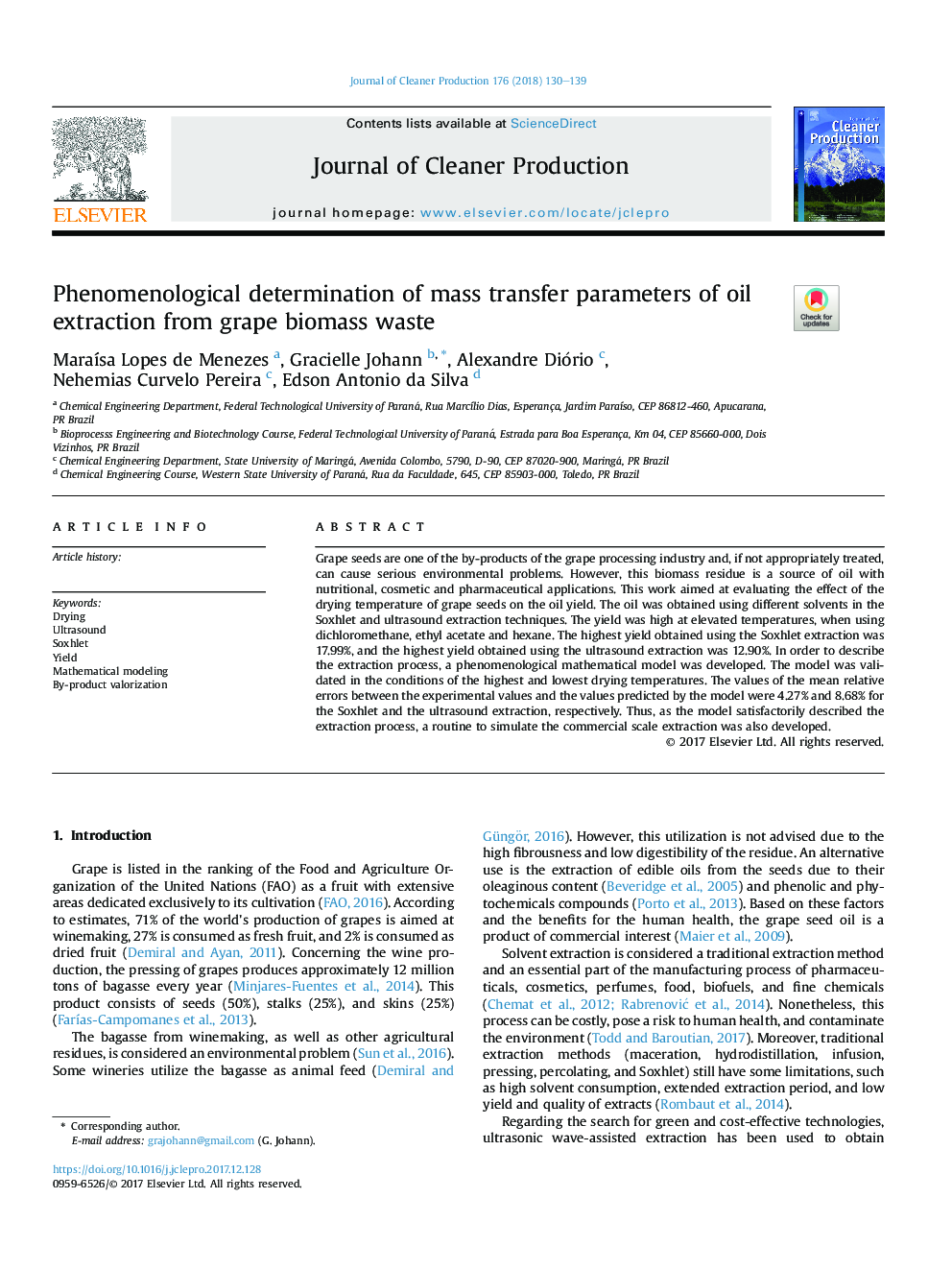| Article ID | Journal | Published Year | Pages | File Type |
|---|---|---|---|---|
| 8098887 | Journal of Cleaner Production | 2018 | 10 Pages |
Abstract
Grape seeds are one of the by-products of the grape processing industry and, if not appropriately treated, can cause serious environmental problems. However, this biomass residue is a source of oil with nutritional, cosmetic and pharmaceutical applications. This work aimed at evaluating the effect of the drying temperature of grape seeds on the oil yield. The oil was obtained using different solvents in the Soxhlet and ultrasound extraction techniques. The yield was high at elevated temperatures, when using dichloromethane, ethyl acetate and hexane. The highest yield obtained using the Soxhlet extraction was 17.99%, and the highest yield obtained using the ultrasound extraction was 12.90%. In order to describe the extraction process, a phenomenological mathematical model was developed. The model was validated in the conditions of the highest and lowest drying temperatures. The values of the mean relative errors between the experimental values and the values predicted by the model were 4.27% and 8.68% for the Soxhlet and the ultrasound extraction, respectively. Thus, as the model satisfactorily described the extraction process, a routine to simulate the commercial scale extraction was also developed.
Related Topics
Physical Sciences and Engineering
Energy
Renewable Energy, Sustainability and the Environment
Authors
MaraÃsa Lopes de Menezes, Gracielle Johann, Alexandre Diório, Nehemias Curvelo Pereira, Edson Antonio da Silva,
